___________________________________________________________
* It is remarkable in the sense that at least two articles report about the U.N. Security Council's publication of North Korean nuclear activity on Nov. 9. See the Washington Post(click) and Washington times(click) both of which were informed from the Defense News letter on Nov. 10 and 11. Question is why the council is reporting it this time.. yes, timing. One cannot bust ask with Hillary Clinton's provocative words while she is touring the region of Asia, as well.
Please also see the Korean SPARK activist's position prior to the ROK-US summit meeting on Nov. 11.
___________________________________________________________
U.S. President Barack Obama speaks to troops serving at the Yongsan military base in Seoul, Thursday. He urged North Korea to stop being provocative and take another path toward peace and prosperity. / Joint Press Corps
Korea Times
11-11-2010
'No waver in commitment to security of S. Korea'
By Jung Sung-ki
Obama arrived in Seoul Wednesday to attend the G20 Summit.
The day also marked Veterans’ Day in the U.S.
[...]
This was Obama’s second town hall meeting-like event with U.S. troops on the peninsula. He addressed troops at Osan Air Base during his visit to South Korea last November.
“Sixty years have come and gone since the communist armies first crossed the 38th parallel. Within three days, they had captured Seoul,” he said. “By the end of the next month, they had driven the Korean army all the way south, to Busan. And from where things stood in the summer of 1950, it didn’t appear that the Republic of Korea would survive much longer.
“Nearly 37,000 Americans would give their lives in Korea. But after three years of fighting, our forces finally succeeded in driving the invading armies back over the 38th parallel.”
The U.S. Commander-in-chief called on Pyongyang to take a different path of offering its people lives of growing opportunity instead of crushing poverty.
“The United States will never waver in our commitment to the security of the Republic of Korea,” he said. “The alliance between our two nations has never been stronger, and along the with the rest of the world, we have made it clear that North Korea’s continued pursuit of nuclear weapons will only lead to more isolation and less security.
“Today, the Korean peninsula provides the world’s clearest contrast between a society that is open and one that is closed; between a nation that is dynamic and growing, and a government that would rather starve its people than change,” Obama said. “It’s a contrast so stark you can see it from space, as the brilliant lights of Seoul give way to utter darkness in the north. This is not an accident of history. It is a direct result of the path that has been taken by North Korea ― a path of confrontation and provocation; one that includes the pursuit of nuclear weapons and the attack on the Cheonan last March.”
In the wake of this aggression, Pyongyang should not be taken for granted, he stressed.
gallantjung@koreatimes.co.kr
Friday, November 12, 2010
Text Fwd: 'No waver in commitment to security of S. Korea' 남한의 안보에 대한 사명감에 어떠한 지연도 없을 것(*오바마)
Subscribe to:
Post Comments (Atom)


![[URGENT PLEA: In Update] EMERGENCY in GANGJEONG Since AUG. 24, 2011](http://2.bp.blogspot.com/-3iz8k-USXVY/TlmRYhhIYtI/AAAAAAAAL2c/9dbF85ZIkIs/s227/jejusit.jpg)
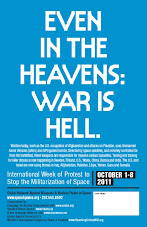
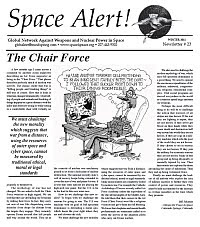

![[Solidarity from Japan for the Jeju] 253 individuals and 16 groups/organizations](http://2.bp.blogspot.com/_gnM5QlRx-4c/TR_YeNVE1yI/AAAAAAAAHWQ/ARyf6oQN0S0/S227/jeju_12_10j.jpg)
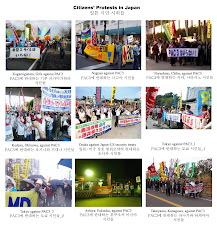
![[Translation] Korean organizations' statement: Immediately cancel the joint ROK-US drill Nov 26](http://2.bp.blogspot.com/_gnM5QlRx-4c/TPOE8VKXHFI/AAAAAAAAGlM/8lryt-8sFjc/S227/1.jpg)
![HOT! [Hankyoreh Hani TV] Beneath the Surface: the investigation into the sinking of the Cheonan](http://4.bp.blogspot.com/_gnM5QlRx-4c/TOI83qht8aI/AAAAAAAAGXU/22SW6Q5ntV8/S227/HaniTV%2BCheonan.gif)
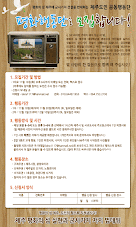
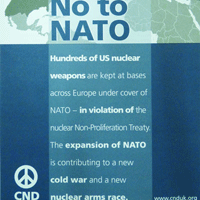

![[Translation]Statement against illegal inspection and unjust lay-off by the Kunsan USAFK!(Nov_2010)](http://4.bp.blogspot.com/_gnM5QlRx-4c/TOPLsVkZMqI/AAAAAAAAGZs/3YnnckIyAaY/S227/gunsan%2Bprotest.gif)
![[Translation] Korean organizations' statement against dispatching special force to the UAE on Nov.](http://4.bp.blogspot.com/_gnM5QlRx-4c/TOP95zHXlCI/AAAAAAAAGak/E0Ug1XtUFfM/S227/antiwarpeace.jpg)
![[Translation] Stop, Joining MD!: South Korean activists' statement and writing on Oct. 25, 2010](http://3.bp.blogspot.com/_gnM5QlRx-4c/TOP7Es4_2sI/AAAAAAAAGac/eWVMPD-U4p0/S227/StopMD.jpg)
![[In Update] People First, NO G-20 (Nov. 6 to 12, Korea)](http://2.bp.blogspot.com/_gnM5QlRx-4c/TJd53XBzHlI/AAAAAAAAFQo/ldO9JPE3eqo/S227/left21_G20.jpg)
![[International Petition] Stop US helipad plan in Okinawa to save great nature](http://4.bp.blogspot.com/_gnM5QlRx-4c/TKC2AHRNzBI/AAAAAAAAFUo/yGWXODTw_uM/S227/yanbaru_w.jpg)

![[Global Network] against the first launch of Quasi-Zenith Satellite, Japan, on Sept. 11, 2010](http://4.bp.blogspot.com/_gnM5QlRx-4c/TIowa1boy4I/AAAAAAAAFDI/82rAi98uq-c/S227/Qzss-45-0_09.jpg)

![[In update] Some collections on the Koreans’ protests against the sanction & war on Iran](http://4.bp.blogspot.com/_gnM5QlRx-4c/TJMvke6t8zI/AAAAAAAAFO4/tamQ8LUnOOA/S227/No+Sanction+on+Iran.jpg)
![[Three International Petitions] to End the Korean war and peace treaty(or peace resolution)](http://1.bp.blogspot.com/_gnM5QlRx-4c/THef7bzWxYI/AAAAAAAAE44/wwdzSDfYhdw/S227/border.jpg)
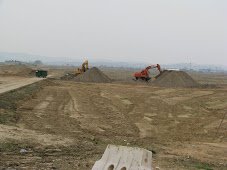


![[Collection of Documents] No Base Learning and Solidarity Program_Korea(June 14 to 20, 2010)](http://1.bp.blogspot.com/_gnM5QlRx-4c/TCTvVuN8NeI/AAAAAAAAEek/8vBJVaHdk10/S227/No-Base-banner.jpg)
![Site Fwd:[John Hines] A U.S. Debate coach’s research trip on the Issues of Korea](http://3.bp.blogspot.com/_gnM5QlRx-4c/TINCO36mzzI/AAAAAAAAE_w/Rds12NcBOXM/S227/Jeju-Peace-Tour.jpg)


![[News Update] Struggle Against the Jeju Naval Base since Jan. 18, 2010](http://1.bp.blogspot.com/_gnM5QlRx-4c/S1vvWaP25uI/AAAAAAAACkg/QvpW1tgOlKM/S226/scrum1.jpg)


![[Urgent] Please spread the Letter!: There was no Explosion! There was no Torpedo! (May 26, 2010)](http://4.bp.blogspot.com/_gnM5QlRx-4c/S_9JmsKEU7I/AAAAAAAAEP8/sAWjSPqxzUI/S227/grounded.jpg)
![Text Fwd: [Stephen Gowans]The sinking of the Cheonan: Another Gulf of Tonkin incident](http://1.bp.blogspot.com/_gnM5QlRx-4c/TAL_FtYKQ-I/AAAAAAAAERE/NEEMijiEcRM/S227/lee-myung-bak.jpg)
![[Japan Focus]Politics in Command: The "International" Investigation into the Sinking of the Cheonan](http://1.bp.blogspot.com/_gnM5QlRx-4c/TBMJ2syJzyI/AAAAAAAAEZU/uTYZccU5vyk/S227/wen_jiabao_and_lee_myungbak.png)
![[Japan Focus] Who Sank the SK Warship Cheonan? A New Stage in the US-Korean War and US-China](http://2.bp.blogspot.com/_gnM5QlRx-4c/S_iQ2vE5ZpI/AAAAAAAAEOU/Oo1SPcAe8FE/S227/buoy_map.gif)
![[Updated on 12/13/10] [Translation Project] Overseas Proofs on the Damages by the Military Bases](http://4.bp.blogspot.com/_gnM5QlRx-4c/S-qSj59gPLI/AAAAAAAAEGM/mwjlFtPE-jo/S227/missile.jpg)
![[International Petition] Close the Bases in Okinawa](http://3.bp.blogspot.com/_gnM5QlRx-4c/S8-z3DYNwNI/AAAAAAAADo4/OswTSchK09M/S227/2.jpg)

![[In Update]Blog Collection: No Korean Troops in Afghanistan](http://4.bp.blogspot.com/_gnM5QlRx-4c/SwnlLD9IewI/AAAAAAAAB9E/oUPssnpNidA/S226/No-Troops-to--Afghanistan.jpg)
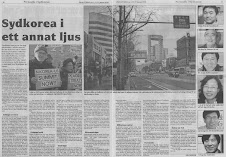

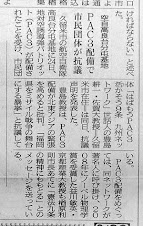

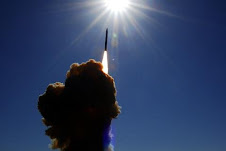



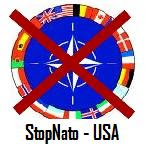


No comments:
Post a Comment